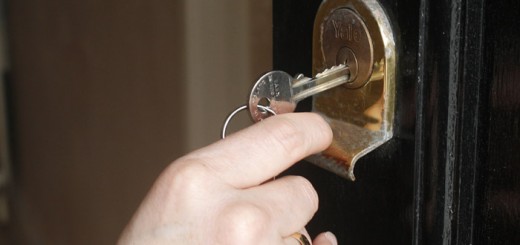Interview advice for expats: 5 key tips
 With the growth of international business, more and more prospective employees are considering a move abroad to pursue their dream job.
With the growth of international business, more and more prospective employees are considering a move abroad to pursue their dream job.
Although it is fair to say that job interviews usually take the same format, it’s the subtle differences like language, culture and etiquette which surprises the expat interviewee.
Fear not, however, as we have 5 tips you should bear in mind to perfect your next job interview:
Etiquette
Behaving in an appropriate manner and dressing the part is important in any job interview, regardless of all other factors. Something that may not occur to you until your interview date is looming is the fact that your understanding of “etiquette” could differ than that of the natives in your new country.
Attire
Take Australia for example, it might be acceptable to show up in casual clothes and the interview may well reflect this relaxed attitude. In the UK or US for example, you are often required to be dressed formally and the interview will also follow this tone.
Selling yourself
Selling yourself in a job interview is always important – you want to show your future employer than you are a capable individual. Depending on the company and country you are based in, you will need to decide whether the hard sell or the soft sell is the more appropriate method.
In countries like the US, for example, addressing all the reasons why your professional history meets the need of the company you are interviewing for is a good idea. In the Far East – but also in Sweden or Norway – the hard sell can come across as self-important and pompous, writing you off the list almost automatically.
Behaviour
For any expat moving from a country where the handshake is the only acceptable gesture in an interview for both males and females, it is rather unsettling to find that two (or even three!) kisses or even a slight bow are the “norm”. My advice is, let the interviewee set the tone: if they offer their hand to shake, take it and likewise, don’t feel offended if no such exchange occurs.
If you think about it, an offer for a Skype interview doesn’t seem half as daunting anymore does it?
Language
The gamechanger for the expat interviewee is the likelihood that your interview will be conducted in another language.
Speaking the language of business
Although you might have a good level of proficiency in your second (or third) language, it’s always a good idea to brush up on specific terminology for the interview. You need to prove your proficiency in the “business language”.
Don’t fake it
You may not be able to cope, in which case, be honest. Pretending to understand when in fact you have no idea will not help you: faking your way through a job interview is never a good idea. Just ask your interlocutor to repeat the question and, if you are still unsure, repeat the question in your own words as a way of checking to see if you understood correctly.
You may well find yourself out of your depth: don’t panic. Demonstrating that you are willing to try and communicate, despite not having the highest level of fluency shows that you are willing to walk that extra-mile to win the competition and get the job.
If you happen to going for an interview in your native language it is also important to show that you are at least willing to exchange a couple of phrases in the native language of new country, even if just to show your interviewer that you know some of the language.
Salary
Everyone dreads the moment when the interviewer casually throws in that ambiguous question: “what are your salary expectations?” Some say “shoot high!” arguing that if the company really is interested to your profile, they will be willing to negotiate. Others say saying too high a number will make the company classify you as too demanding and reject your application.
What we say is: have a look at websites like Glassdoor and Payscale. Find out how much someone in that position is likely to earn in the country you want to move to. At least then you have a reasonable number as a starting point.
When it’s your turn to ask the questions!
When the interview is drawing a close, the interviewee is often asked if they have any questions. It’s always advised to have some questions up your sleeve to show your interest.
Western employers would not hesitate for a second to choose a confident individual over someone who is not, so asking questions is always encouraged. It shows that you have an invested interest in the company and have taken the time to do some research. Be careful however, as passivity in Far Eastern countries does not translate as disinterest but as respectful, while too many questions could come across as pushy.
If you are unsure about how to approach this, it’s a good idea to wait until they ask for your questions, and perhaps limit them to three or four.
Wrapping up the interview
Researching the company beforehand is always advised (as it has shown that you have done your homework) – you can find out a bit more about the team and the dynamics, making it easier to know how the interviewer will respond to you.
Many companies like to have an international team as it keeps perspectives fresh and modern, being a foreigner may well be an advantage and put you ahead of the league!
Have you got any further advice about how best to behave in an interview? Perhaps you are an employer who frequently interviews foreign candidates, do you have any advice for our readers?
[Image by kaboompics.com, ADPH Group]



